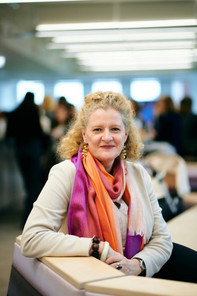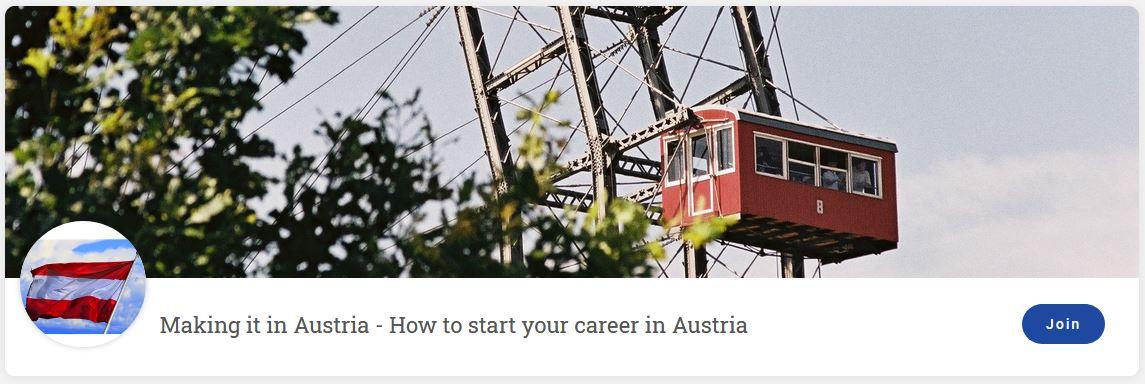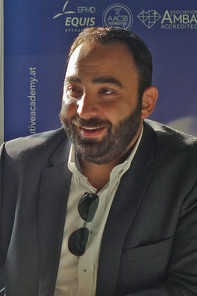Overview
Recommendations
Next Steps
Social media
Comprehensive career services for MBA students and alumni
Culture, language, surroundings: people who want to launch their career in Austria often experience a rocky start. With this in mind, the WU Executive Academy recently introduced the “Making it in Austria” initiative. It is a digital platform comprised of experts, mentors, and alumni who offer extensive support through career services and individual coachings to students and graduates wishing to start a career in Austria. Barbara Stöttinger, Dean of the WU Executive Academy, and two alumni who have in fact made it, Ema Hafner, Head of the Marketing and International Business Department at Wiener Privatklinik (Vienna Private Hospital), and Marijan Mumdziev, CEO of Amodo, explain the platform’s services and go into what expats should pay special attention to.

Vienna has a reputation of being the city with the world’s best quality of living. To expatriates, i.e. managers from other countries, the City of Song offers many amenities: urban flair, cultural diversity, and excellent job opportunities await in this international business hotspot in the heart of Europe. The capital city of Austria serves as the perfect hub to connect Eastern and Western Europe, offering exciting jobs in international institutions and corporations as well as excellent breeding grounds to start a company.
While all of this is true, many executives who wish to launch their career in Vienna tend to underestimate what this requires, says Therese Bauer. As Community Engagement Manager at the WU Executive Academy, she and the team of the WU Executive Club are in charge of supporting and bringing together students and alumni. Very often, the importance of the German language is underrated. “Unfortunately, English is not always the corporate language of larger enterprises. Being more or less proficient in German is necessary to connect with the people around you – very often also on the job.” Cultural differences are also an important factor.
For MBA alumni and students who wish to settle down in Austria, the WU Executive Academy has started its own digital group hosted on the exclusive internal platform WU EA Connect. From November 2020, the “Making it in Austria” group will connect community members with selected experts and mentors who have either launched a successful career in Austria themselves or can offer specific expertise to the future expats.

Barbara Stöttinger
Very often, the networks of individual MBA cohorts already significantly contribute to a successful next step on the career ladder. Our new initiative "Making it in Austria" enables community members to find suitable mentors and experts beyond the confines of their own MBA cohorts and within the entire online alumni network, which by now has more than 2,000 members.
Within this group, there are graduates with a background in HR and years of professional experience but also experts from a multitude of different industries. Members are supported through online and offline activities and have the possibility to ask individual questions revolving around professional careers in Austria. “We cover a great diversity of topics,” says Therese Bauer, “ranging from general (career) tips to the Red-White-Red Card. EU citizens do not require any paperwork to this end, and nationals of third countries can apply for a Red-White-Red Card upon graduation. The card is issued following a check ensuring that the applicant has suitable qualifications, adequate means of subsistence, housing, and insurance coverage. It enables third-country citizens to live in Austria and work for a specific employer for 24 months. A short catalog of questions at the beginning of a consultation gives the experts of the WU Executive Academy an idea of where the candidate’s career is currently at. Thanks to this modus operandi, it is made sure that community members are always matched with the right experts. Among the mentors, there are not only alumni but also external career coaches, executive search and legal experts as well as HR professionals.
“Regular quick coachings give the participants individual and extensive support that will help them become successful in Austria,” says Therese Bauer.

Among the successful alumnae of the WU Executive Academy who have made it in Austria is Ema Hafner. In 2016, she moved to Vienna for love. This came after an astonishing career in Romania: after pursuing a career in banking as a very young woman, landing her a director’s job at an international bank, she changed industries at the age of 31, becoming a general manager in the health industry. From 2005 to 2015, she served as CEO at various medical private institutions – most recently as CEO of Amethyst Radiotherapy International in charge of Romania and Bulgaria.
The move to Vienna was a necessary choice for her: “I had reached a stage where my private life and having a family became more and more important,” she recounts. What is more: “I thought, if I can make it here, I can make it anywhere.” Together with one of Amethyst’s shareholders she was looking for a hospital where they could establish an Amethyst radiotherapy center, as part of the European expansion strategy of Amethyst. The search for a suitable private hospital brought her to Wiener Privatklinik, where she took a job as Head of Business Development. “Career-wise, this was definitely a step back for me, but I was promised the position of Head of International Business.” She agreed to take the job and got the promotion after just six months. At the beginning, her German skills were an issue: “One of my bosses consistently spoke German to me during my job interview – probably to test me,” she chuckles.
In the meantime, English has become the preferred language also within her team. “I lead the Department for International Business after all, and we want to become even more international,” she says. She is still working on improving her German: “My kids started pre-school this fall, and I want to keep up with them.” The people in her social circle speak English fluently, also due to the fact that many of her friends come from other countries or have had a career at international companies, where English is standard.

Ema Hafner
An advice I want to give other expats who are considering to move to Vienna for their careers is the following: It is okay to take a step back career-wise in the beginning, as long as there is a chance to move up the ladder again quickly.
It is important to negotiate favorable career conditions right from the start: Ema Hafner, for instance, reported directly to the CEO from the beginning on. In order to make it here, people have to prove themselves – especially when they have yet to master German, she says. “If you do not speak German, it will not be easy to launch a career in this city. You will need to find a way to show what you are capable of in order to offset your lack of linguistic aptitude.”
Marijan Mumdziev has spent the last 15 years as an expatriate in Vienna. “For me it has always been a professional, international environment in a multicultural destination,” says the CEO of Amodo, an international data platform for insurance providers. The internet-of-things expert launched his first company ANTIvirus in Croatia in 2000. After his successful exit, he landed a job as Lead Solution Architect with Siemens in Vienna. This was followed by a stint as Head of Partner Management CEE with Nokia and a position as Senior Advisor and Board Adviser with the telecommunications provider A1.

Marijan Mumdziev
I really wanted to make it here. Vienna is very international, and you get to meet people with very diverse backgrounds.
Even though in many corporations, the use of English as a working language is more or less standard, he urges expats to learn German. “Speaking German is extremely important if you want to have a social life. When they are among themselves, your colleagues will probably also speak German.” Marijan Mumdziev advises future expats to use their chances wisely: “It is not only the big corporations that offer great job opportunities. Keep an open mind when you are looking for a job.” Due to restructuring processes at the companies where he worked, many a promotion opportunity quickly faded. The integration factor should also not be underestimated: “I have seen many expats leave the country out of frustration. It is important to keep in mind that you are not at home and that it is not always easy to fit in, no matter what country you move to. It has taken me 15 years to understand the Austrian culture. However: if you are willing to give something back, you will be welcomed here,” says the top manager, who divides his time between Vienna and Croatia. It is, after all, up to every one of us to make the best of our surroundings and our jobs.
For more information about the Career Services of the WU Executive Acamdey, please click here.